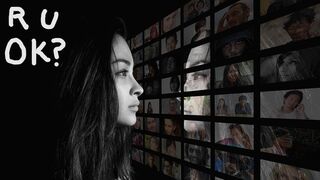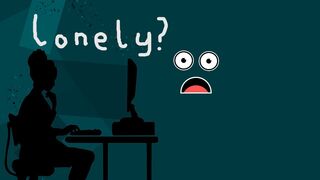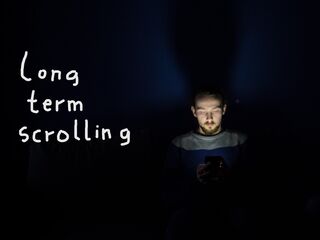Media
Social Media and Teen Mental Health: Will Congress Act?
Will the U.S. Congress support social media and mental health research?
Posted May 5, 2022 Reviewed by Lybi Ma
Key points
- The U.S. Congress received expert testimony on how social media use harms teen mental health.
- Congress is considering a law that will open up social media data to researchers.
- Mental health among adolescents is worse in the past decade, including increased depression, anxiety, and self-harm.
- Academic and other research suggests using social media may lead to worse mental health, particularly in girls.

During graduate school, I had conversations with a close friend about the lives she saw her high school classmates and friends living online. To her, their lives looked “perfect,” or at least more perfect than the one she had carved out for herself, doing research and developing computerized systems to help students and soldiers better read and understand technical materials.
This comparison seemed odd to me. While I could see that her friends were posting happy pictures of their marriages, pregnancies, and families, I was even more impressed by the life she had created for herself as an award-winning scholar contributing to and leading important research efforts. As rich as her life was professionally, and even with a community of friends around her, she continued to feel like she wasn’t living up to some kind of cultural standard. Seeing the “perfect” curated images of her friends’ lives made her feel worse about herself.
Social media is a ubiquitous part of daily life for many people, including teens and adolescents. One of the striking findings that the “Facebook whistleblower” Frances Haugen revealed publicly is that internal research by the company itself (now called Meta) suggested that social media was harming young women’s mental health. These include findings that UK teen girls had increased rates of suicidal thoughts after joining Instagram, that teen girls had worsened symptoms of eating disorders after using Instagram, and that many teen girls (32 percent) felt worse about their bodies after using Instagram. New legislation being considered by the U.S. Congress may help us better understand the way social media can affect mental health.
Psychologist Jonathan Haidt was one of several experts testifying at the U.S. Senate Judiciary Committee, Subcommittee on Technology, Privacy, and the Law this week, as they consider the Platform Transparency and Accountability Act (PATA). His testimony focused on psychological evidence suggesting that there is a crisis in mental health among young people, particularly young women, and that social media is a key contributor.
Haidt reviewed evidence showing that rates of depression, anxiety, self-harm, and suicide attempts among adolescents have all risen sharply over the past decade. Around the world, adolescents report higher levels of loneliness at school.

Analyses suggest that these effects are specific to social media, and not all types of digital media. A recent analysis by Amy Orben and Andrew Przybylski found no association between digital media use overall and reduced well-being, but that association was significant when social media in particular was singled out. It’s scrolling through Instagram for hours, as opposed to binging Netflix, which appears to have negative effects.
Both Orben and Haidt agree that the association between social media and well-being is significant and negative (for those with a knowledge of statistics, it corresponds to a correlation of r = -0.15 to -0.10). While this is not traditionally considered a large effect size by social science standards, Haidt points out that it is large enough to make policy recommendations. For example, this correlation is similar in size to that of calcium and bone mass in premenopausal women, and to that of lead paint and IQ. We currently recommend women take calcium supplements and no longer use lead paint in houses. Haidt also notes that the effect is even stronger among girls.
Further, the amount of time people spend on social media seems to matter. Levels of depression seem to be much higher in boys and girls who spend more than two hours a day on social media, as opposed to less than two hours.
There is also some evidence that teenagers themselves identify social media as a problem. A survey of Australian teens asked them why they believe the mental health of teens is getting worse, and 37 percent said it was due to social media.
Adopting PATA is one recommendation that Haidt makes to help find ways to push back against worsening mental health among adolescents that he believes is due to increased social media use. PATA intends to increase transparency in social media platforms and to give researchers access to critical data collected by these platforms. As Tara Wright of Stanford’s Cyber Policy Center puts it, PATA “aims to address the concerning disparity between what platforms know about us, and what we know about them.” Haidt recommends adopting it because it would allow researchers to study the effects of social media on mental health in more depth.

Further research is particularly important for establishing cause-and-effect relationships. It’s one thing to note that teens using more social media are more likely to be depressed. But it’s another to really establish that social media causes depression. There could be other factors at play: being depressed could make teens more likely to use social media, or there could be other factors–like generally higher levels of stressful events in society–driving teens to feel more depressed and use social media more. Only by intervening, running experiments where we randomly take away some teens’ social media access for a period of time, can we figure out if there is a true cause-and-effect relationship.
My friend from graduate school is a successful professor now. I don’t know whether she still feels insecure or less than when looking at the lives of her former classmates. But I do know that, as a psychologist dedicated to research, she would want to make sure we can find out how social media really affects us.




